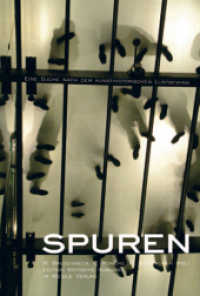Full Description
Cross-disciplinary scientific collaboration is emerging as standard operating procedure for many scholarly research enterprises. And yet, the skill set needed for effective collaboration is neither taught nor mentored. The goal of the Toolbox Dialogue Initiative is to facilitate cross-disciplinary collaboration. This book, inspired by this initiative, presents dialogue-based methods designed to increase mutual understanding among collaborators so as to enhance the quality and productivity of cross-disciplinary collaboration. It provides a theoretical context, principal activities, and evidence for effectiveness that will assist readers in honing their collaborative skills.
Key Features
Introduces the Toolbox Dialogue method for improving cross-disciplinary collaboration
Reviews the theoretical background of cross-disciplinary collaboration and considers the communication and integration challenges associated with such collaboration
Presents methods employed in workshop development and implementation
Uses various means to examine the effectiveness of team-building exercises
Related Titles
Fam, D., J. Palmer, C. Riedy, and C. Mitchell. Transdisciplinary Research and Practice for Sustainability Outcomes (ISBN: 978-1-138-62573-0)
Holland, D. Integrating Knowledge through Interdisciplinary Research: Problems of Theory and Practice (ISBN: 978-1-138-91941-9)
Padmanabhan, M. Transdisciplinary Research and Sustainability: Collaboration, Innovation and Transformation (ISBN: 978-1-138-21640-2)
Contents
Preface
Chapter 1. Communication Failure and Cross-Disciplinary Research - Stephen Crowley and Michael O'Rourke
Chapter 2. How It Works: The Toolbox Dialogue Method in Practice - Michael O'Rourke and Stephen Crowley
Chapter 3. A Narrative History of the Toolbox Dialogue Initiative - Graham Hubbs
Chapter 4. The Landscape of Challenges for Cross-Disciplinary Activity - Shannon Donovan
Chapter 5. Communication and Integration in Cross-Disciplinary Activity - Michael O'Rourke and Brian Robinson
Chapter 6. The Power of Philosophy - Chad Gonnerman, Graham Hubbs, Bethany K. Laursen, and Anna Malavisi
Chapter 7. The Power of Dialogue - Michael O'Rourke, Troy E. Hall, and Bethany K. Laursen
Chapter 8. Best Practices for Planning and Running a Toolbox Workshop - Marisa A. Rinkus and Stephanie E. Vasko
Chapter 9. Enhancing Cross-Disciplinary Science through Philosophical Dialogue: Evidence of Improved Group Metacognition for Effective Collaboration - Brian Robinson and Chad Gonnerman
Chapter 10. Qualitative Analyses of the Effectiveness of Toolbox Dialogues - Marisa A. Rinkus and Michael O'Rourke
Chapter 11. Future Directions for the Toolbox Dialogue Initiative - Sanford D. Eigenbrode, Stephanie E. Vasko, Anna Malavisi, Bethany K. Laursen, and Michael O'Rourke
Chapter 12. Toolbox Workshop Case Studies - Graham Hubbs, Michael O'Rourke, Sanford D. Eigenbrode, Marisa A. Rinkus, and Anna Malavisi
Appendix A. Scientific Research Toolbox Instrument
Appendix B. Examples of Toolbox Dialogue






